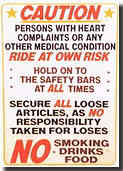Tuesday, April 20, 2010
Scapegoat
scapegoating: "Process in which the mechanisms of projection or displacement are utilised in focusing feelings of aggression, hostility, frustration, etc., upon another individual or group; the amount of blame being unwarranted."The psychological rather than religious/historical definition.
Scapegoating is often linked to the terms redemptive violence & retributive justice. Both Gandhi & Dr. King rejected those as contradictions. What does violence redeem? Is the means - violence - appropriate to the goal - redemption of what? Redemptive violence is the great mental disease of the world. It drives popular & political cultures & infects religion, we get it from myth.
We believe in redemptive violence. We're more confused by retributive justice. Retribution - punishment - may be necessary. Sending Bernie Madoff to prison wasn't justice for his ponzi scheme victims. They don't get their money back. They need restorative justice, which isn't possible for victims of violent ot traumatizing crimes. Gandi & King sought transformational justice, in which victimizers & victims are positively changed by the process of justice. Neither believed this justice could be reached through violent tactics on the part of those seeking justice.
Finding the scapegoating in relationships is high on the agenda of family therapists because it's where the battling parties share faults & flaws. What we project on the other is what we also do. When these parties are married or have grown up in the same home, they tend to share or exchange attributes. They may express them in different ways.
That's difficult. Easier is examining political movements, politicians, & media personalities for their scapegoating. What remains when the scapegoating is taken away? - Sometimes problems that can't be solved by sending away their scapegoats. Scapegoating is popular entertainment.
Thinking about this after rereading part of The Powers That Be by Walter Wink. It's a fairly short religion/spirituality book, read it a long time ago, a digest of Wink's ideas that he compiled for more casual readers. Quite useful in non-religious contexts, which was probably some of his intent. Gives a fresh perspective on how to see communities & institutions. Wink might be amused to know that it helped me adjust from a weekly to a fill in DJ at WFMU. The decision was mine & had to be made, since I was given the option of keeping a regular show. But my anger at making the decision at that moment was grounded in a fear that WFMU, having moved to Jersey City, might change to something unrecognizable, & although I was minor figure there, my regular presence on the air for so many years had contributed to the station's identity. Wink helped me see that WFMU's full personality - what he called it's "angel" - was a projection of many attributes & many personalities, & would resist any radical, sudden shifts. In this particular community & institution, I could trust that "angel" based on the trust & good-feeling I had for other DJs & listeners who had come over from East Orange, & the influence they would have on new staffers & listeners as WFMU grew. Many of the fresh blossoms would resemble the old ones. At the time, the new studios & location felt too new & had unsettled me. They hadn't been inhabited fully by the spirit of the membership, which is informal & clubby & often messy. Now, when you go there, there's no mistaking where you are. I relaxed, enjoyed breaking in the new digs, the anger drained away.














